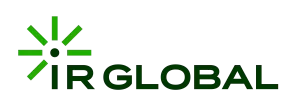The great silk road: it's the historic route which spanned 6,400KM from the Bosphorus in the West to Xi'an in the East and transported spices, precious metals, tea, cotton and now... financial technology?
Together, Israel and the Middle East are the historic custodian of the silk road - a corridor for trade, information and more importantly, ideas. The region marks the crossroads between Western and Eastern civilisations, and the meeting place of Western, Eastern and its own ideas.
With the introduction of the Abraham Accords, a new age has dawned in the region, fostering a completely different type of collaboration for Israel and the United Arab Emirates (UAE). The Accords help to turn our focus outward, leveraging our rich entrepreneurial history, technological progress and fostering further financial investment. The agreement also creates the perfect melting pot for global fintech to take root and flourish.
Here are three reasons why I believe Israel and the Middle East can become a fintech powerhouse.
1. Global-first entrepreneurship
The Startup Nation is a well known story in the global business community of Israel's rise to commercial prominence. Since the early 2000s, economists believe two factors - mandatory military service and immigration - have contributed to the global entrepreneurship we see today.
According to economists, Senor and Singer, mandatory military service created a young workforce that developed a wide skill set as well as a wide contact network. Likewise, Israel's history as a country of immigrants has created a culture of self-reliance and self-starting. Together, Senor and Singer (The Economist, 2010) believe these two factors have made Israel a country with more tech startups and a larger venture capital industry per capita than any other country in the world. Today, and according to the most recent data, investment into Israel stays strong at $28,000 per capita, compared to investment into the US at $1000 per capita.
Fast-forward to 2023, Israel's perfect storm of its widely skilled and contacted workforce, its self-starter mentality and continued appetite from venture capitalists, continues to provide a melting pot for innovation and technological progress, despite the recent global economic downturn. And, as a small market, Israel-based entrepreneurs have developed their products with an eye for the global stage.
2. Generational (r)evolution
If Israel and the broader Middle East are a breeding ground for supplying entrepreneurs, its peoples are beginning to provide the demand: A changing attitude towards new ideas and progress across the region. Increased inter-connectivity (both technological and cultural) to the wider world, an increased presence in global affairs, and an inward cultural change, has seen the region's youth and governmental initiatives begin to propagate the cultural change necessary to embrace innovation and technology, according to authors at The Tony Blair Institute for Global Change (2022).
And although a change to attitude can be difficult and challenging, the region understands it's essential to change. This is not just because the world is changing and it's give-and-take, but because there is a bottom-up demand from new generations of people. It's a quiet revolution, but a profound evolution that adds the 'demand' to the 'supply' for regional innovation; it's creating the launchpad to test incubated technologies to expand globally.
3. Embedded finance: Cross-border financial enablement
Embedded finance is the final piece in the puzzle and why the opportunity for Airwallex in the region inspires us and takes us back to our startup roots.
It's one thing to have a generation of self-starting entrepreneurs and a changing-to-progressive population with a desire for global connectivity, but for Israeli and Middle Eastern businesses (and global businesses in the Middle East!) to actually operate on the world stage, they need the financial infrastructure to make it possible and, more importantly, make it lucrative.
What is embedded finance? It means we, and providers like us, give businesses the building blocks they need to add financial services to their product so they can operate financially across borders. In other words, embedded finance has the potential to turn Israeli and Middle Eastern business into FinTechs.
Through a suite of APIs and configurable components, businesses can embed financial technology code directly into their own tech stacks. This is similar to the Software as a Service (SaaS) model of the 2010s, but with a very important distinction: embedded finance is far more controllable, configurable and syncable with the customer's own software.
Why didn't embedded finance happen at the same time as the rise of SaaS? The regulatory licences required to provide financial technology to unlicensed customers is a recent development and a serious investment - one that few providers have made. And that's before we mention the intensive technical resource and time required to integrate into local and global financial infrastructure.
Airwallex began its journey to provide better cross-border commerce back in 2015 after our founders were paying 4% in FX fees to import coffee to Australia. Since then we've built out our global licence network, technical integrations and teams so that a business today making the same cross-border transaction as our founders would only be paying 0.5%.
I am personally very excited to see the many products, innovations and solutions the region's entrepreneurs and startups can build on top of our financial infrastructure.
Conclusion: Can the fintech silk road start in Israel and the Middle East and flow back to the East and West?
The three factors above - global-first entrepreneurship, a generational (r)evolution and cross-border financial enablement - all combine to put Israel and the Middle East in a strong position to develop its own fintech ecosystem both for domestic and global success and growth. In this way, the region can become a truly global sandbox for financial innovation.
Amid concerns that the global downturn is also negatively affecting the high-tech industry, the region's businesses need to widen their market internationally now more than ever to survive and thrive.
It's why Airwallex has moved early to establish a presence in the region. We want to cultivate, develop and amplify the region's future global business offering while also providing an immediate cost-effective route to global expansion.
As we establish ourselves in the region, I'm meeting as many people as I can to build our network and quickly understand how Airwallex can best cultivate, develop and amplify.
The content of this article is intended to provide a general guide to the subject matter. Specialist advice should be sought about your specific circumstances.


